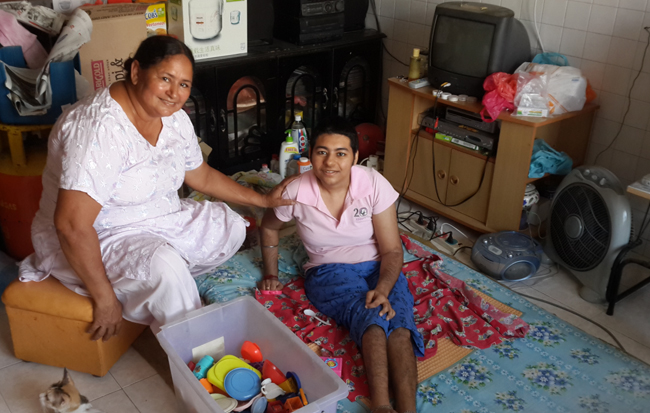That is how Anthony Thanasayan, born with spina bifida (a congenital condition of the spine), feels about his future.
“It’s hard for me to go out as I would need somebody to help put my pants on,” says the 53-year-old, explaining why a personal care assistant is important for persons with disabilities especially those who do not have any family members to take care of them.
Wheelchair-bound, the city councillor for Petaling Jaya, sometimes feels embarrassed about his condition. But for Anthony, that’s his daily reality.
Even those who have family members as caregivers, one question arises: “What happens as they age and grow older?”
In countries like the United States, the personal care assistance (PCA) programme has been established to provide services to persons who need help with basic daily routines.
“A person with disabilities is actually very normal. We also want to take part in life. With PCA, it will definitely help us in our day-to-day life.”
That is Thanasayan’s wish for people who are wheelchair-bound so that they can have a better quality of life.
While better access to facilities is important such as parking, public transportation, toilets; it is the basic routines like getting up from the bed, hygiene and dressing up that is sometimes the most troublesome.
Balder Kaur, 57, shares the same worry. “Who will take care of my children when I’m gone?” she asks.
She is currently the caregiver of two disabled children.

Prior to this, Balder’s hoped that her son Sukdev Singh, 33, can take care of his younger sister who was born with mental disabilities.
That was until four years ago when her dreams for a better life for the family shattered when Sukdev was involved in an accident causing him to be paralysed from waist below.
“Right now I can still take care of them. But what happens to them when I’m gone?” Balder says, holding back her tears.
Not earning a fixed monthly income, life becomes a challenge for the single caregiver as her husband is also not able to work as a result of a recent accident.
The assistance from the welfare department is not enough as her daughter often falls sick and needs constant medication to control her seizures.
“I hope the government will give more money so we can live a better life,” says Balder.
As a caregiver, monetary assistance would help as many like her had to give up their jobs to care for their disabled partner, child or family member who needs constant attention.
While there are those who are born disabled. Balder's son Sukdev was born normal, leading a normal life, then all of a sudden, he wakes up a paralysed man, losing the ability to walk.
If it could happen to Sukdev, it could happen to anyone.
The question is: “who will take care of you?”
For Anthony, who has passed the age of over 50 this year, the concern is more real.
"Who will take care of me? I have no family members."
Therefore he hopes that more allocation will be given for the welfare of persons with disabilities in the upcoming budget especially on the aspect of personal care assistance.
"It is the job of the government to take care of us (disabled persons), for those who has no family or caregivers," he said.
Meanwhile Balder hopes the budget will also focus on caregivers like her who are especially burdened by financial challenges, such as taking care of two disabled children.
"You have no idea how much a little assistance would help us," she said wiping her tears.
The United Nations estimates that the number of persons with disabilities (PWD) in Malaysia is about 2.8 million, or 10% of its population of 28 million.
However, according to statistics from the Social Welfare Department (JKM), as of December 2011, only 359, 203 PWDs were registered with the department.





